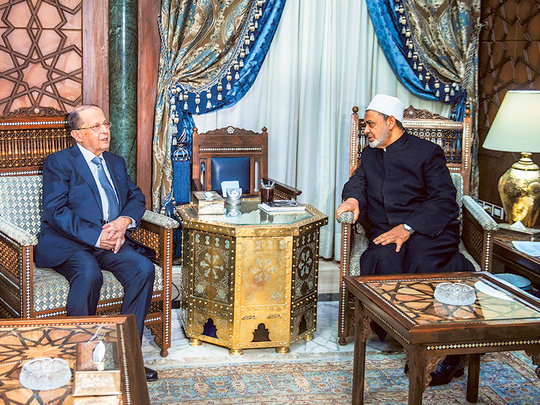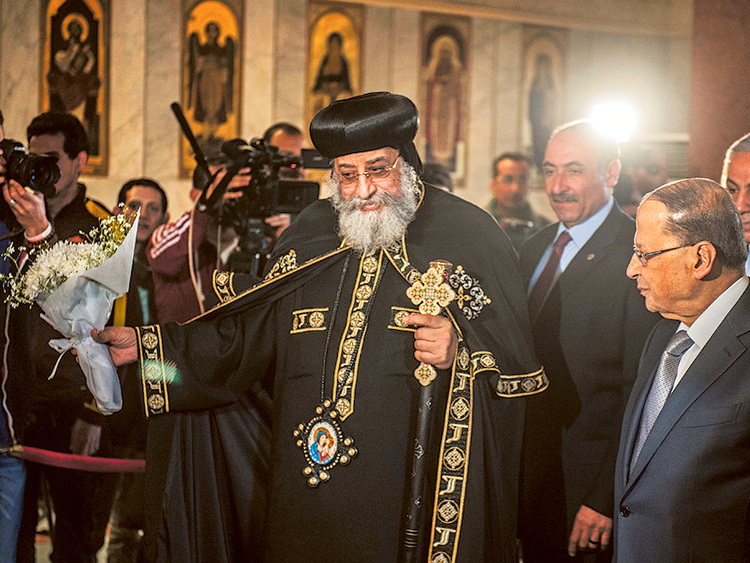
Cairo: Newly elected Lebanese President Michel Aoun arrived in Egypt on Monday, a day after he defended Hezbollah’s refusal to give up its arms in media comments that underlined his unabated support for the Iranian-backed Shiite militant group.
Aoun’s visit to Egypt is the first for the former army commander in 55 years. He was elected after a 29-month vacuum in Lebanon’s top post. He met with Egypt’s President Abdul Fattah Al Sissi who is, like him, a career military officer. Aoun was scheduled to address the Arab League later during his one-day visit.
In a news conference, Aoun said that he discussed with Al Sissi regional issues and called upon Egypt to lead an “Arab salvation plan” to combat terrorism in the Arab world. He also extended an invitation to Al Sissi to visit Lebanon.
Lebanon’s political factions are deeply divided with some, like Aoun’s party and Hezbollah, aligning with Iran, while their opponents are siding with Saudi Arabia.
Hezbollah, which represents much of Lebanon’s large Shiite community, has a military capability rivaling that of the country’s army and police. Aoun, whose Christian party is allied with Hezbollah, said earlier that Iran’s support for the group “could continue indefinitely.”
“As long as the Lebanese army is not strong enough to battle Israel ... we feel the need for its existence,” Aoun told the Egyptian TV network CBC on Sunday night, alluding to Hezbollah. He added: “It has a complementary role to the Lebanese army.”
His remarks could spark tension with Saudi Arabia which has been engaged in proxy wars with Iran across the region for years.
Aoun’s visit to Egypt also comes amid a lingering rift between Egypt and Saudi Arabia over conflicting agendas, including Syria and Yemen. In October, the Saudis halted oil shipments to Egypt at a time when the Arab world’s most populous nation was undergoing an economic crisis.
The Saudi move appears to have been taken in response to Egypt’s support of a UN Security Council resolution on Syria that was fiercely opposed by Riyadh. Saudi Arabia is a leading supporter of the rebels fighting to topple President Bashar Al Assad. Egypt has pushed for a political solution that might keep him in power.
Meanwhile, Egypt has been reluctant to heavily support Saudi’s campaign in Yemen against Iran-backed Al Houthi rebels, which Saudis accuse of acting as an Iranian proxy in the Arab world’s poorest nation.













